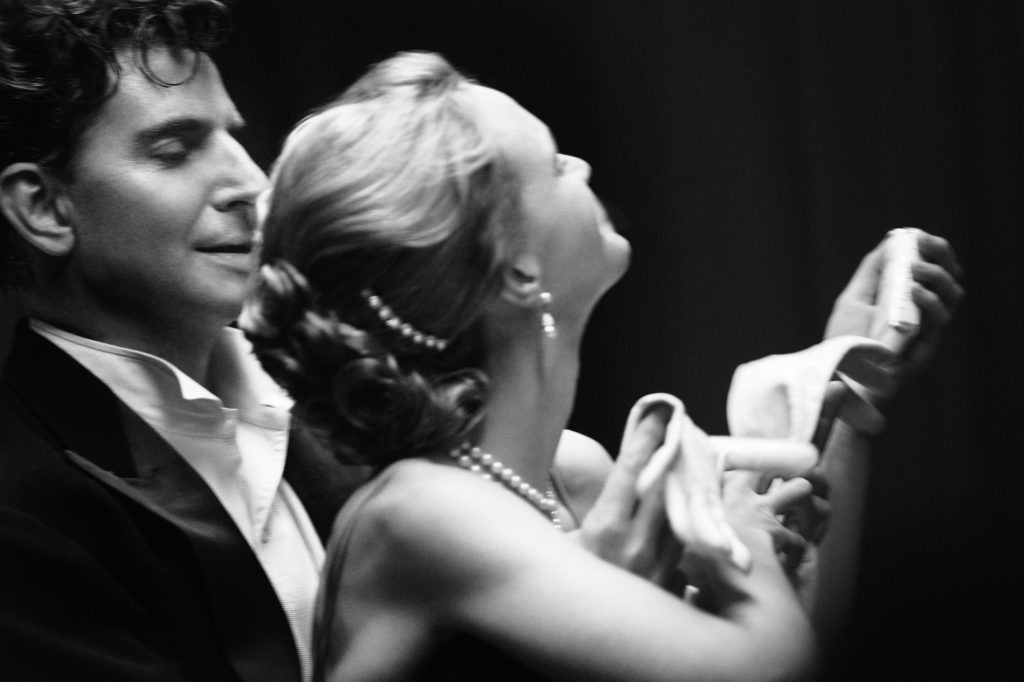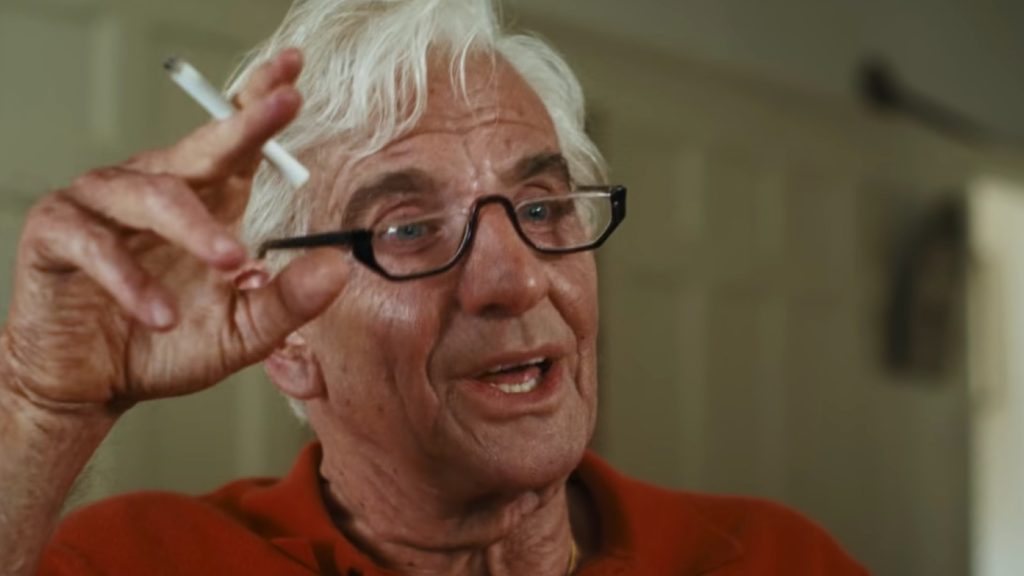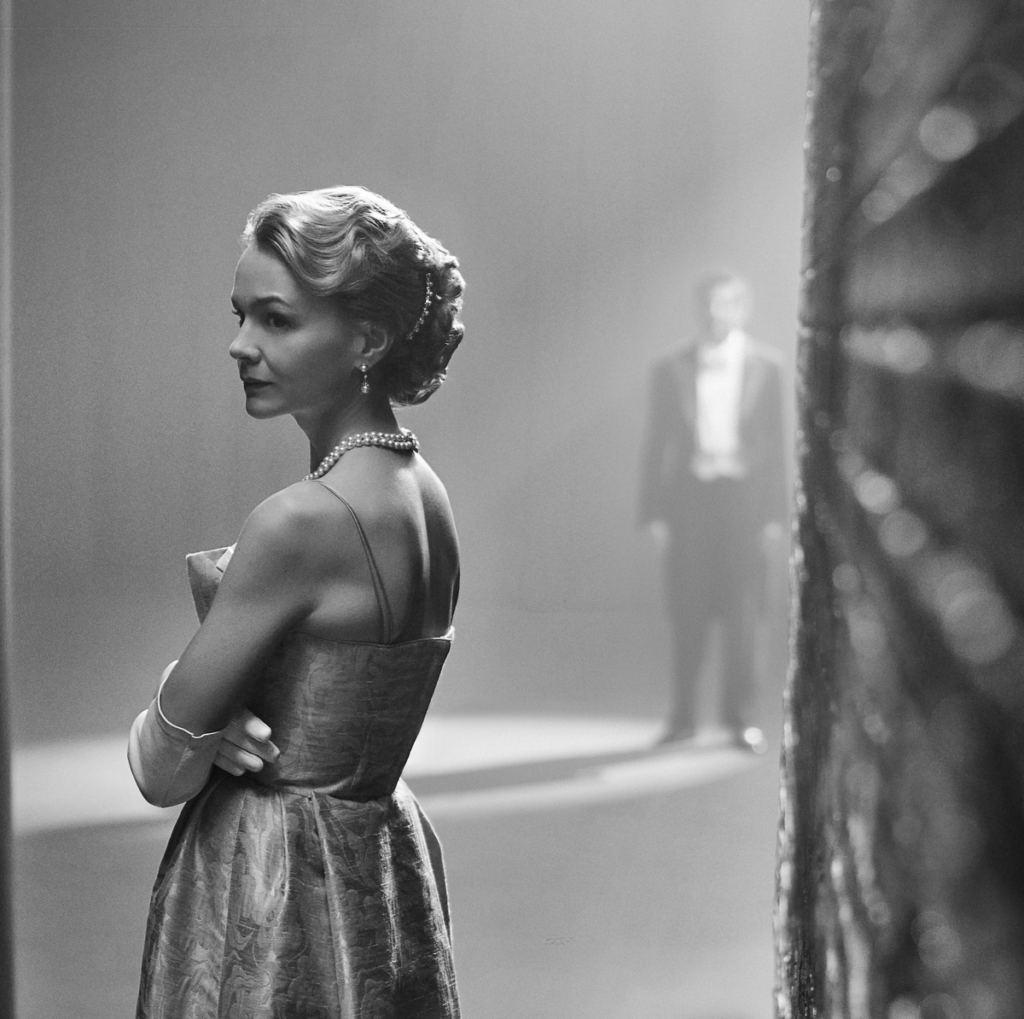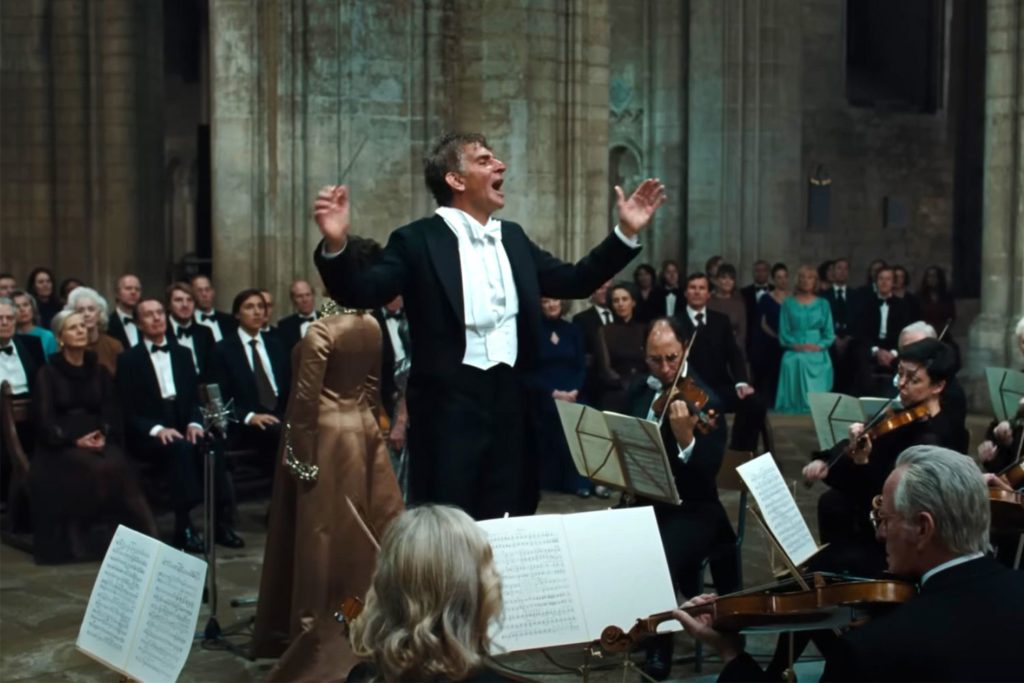‘Oppenheimer’: The Man Behind the Myth
‘Oppenheimer’ is a force to be reckoned with. A biopic that respects the audience’s intelligence.
Incluvie Foundation Gala - Learn More


I don’t think it’s important to know who Leonard Bernstein (Bradley Cooper) is before going into Maestro. Although it is a film about the famed American composer’s life, the story doesn’t flow like a conventional biopic. There is no emphasis on particular events or moments in the artist’s life that helped shape him. Nor are there many scenes that would contribute to filling out his biography and solidifying an already legendary status in the pantheon of great composers.
The movie is more of an old Hollywood romance, with a big score, and beautiful black and white cinematography. The two leads, Bradley Cooper and Carey Mulligan, are fully invested in their characters and a specific, somewhat complex affair. They are soulmates, star-crossed lovers. This is a transcendent love story, larger than life, while meticulously examining each individual musical note. It encapsulates something both intricate and simple in all the right ways.

If I sound like I’m gushing, it’s only because I appreciate the size of this production, the way it aspires to say big, beautiful things in the way that only movies can.
That’s not to say Maestro does not have its flaws. I think it suffers from a problem of cohesion. I believe Bradley Cooper has a lot of ideas and attitudes to express, but in incorporating them all, I think he loses track of the essential narrative. The story could have been more clearly delineated, hammered out for the audience to easily follow and appreciate.
I think there might also be an over-reliance on imagery. We see the gray hairs, the wrinkles in skin, (the make-up in this film is astounding and I would not be surprised if it took home Best Make-up at this year’s Oscars), and even the changes in Bernstein’s tone of voice. The shots get more static late into the film, and the children are replaced by older actors to parallel the main character’s aging. The music advances along to more contemporary sounds, through records and car radios. Together, these are indicators to the audience that we are traversing years, decades even.
These are our only clues, however, as most of the film consists of ordinary encounters. Bernstein’s accomplishments are only mentioned in passing, it’s left to viewers to research about the musician’s life and work. We are presented ordinary encounters that come and go without clearly portrayed impact on the character or indications of his rise to fame and success. As viewers, we are left with an impression but lack a clear understanding of the main character, his influences, and other contributions to his music.

The opening scene begins with an aged, weary Leonard Bernstein in his home, engaging with a production crew that seems poised to interview him for a television profile. From this present moment, we then leap back, presumably to the 1940s, witnessing Bernstein’s inaugural encounter with the spotlight as he steps in for another composer at Carnegie Hall.
Next, Leonard meets Felicia Montealegre (Carey Mulligan) at a party. The two flirt and seem to be enamored with one another. Felicia is an actress, but as the story progresses, we’re led to believe she sets her life, or at least her professional ambitions aside, for the towering Leonard and his booming career.

His sexuality becomes a focal point on more than one occasion. For instance, we witness Bernstein with a male lover early in the film and then again toward the end. However, his homosexual love affairs are not distinctly outlined. Remarkably, they don’t appear to interfere with the couple’s marriage or the upbringing of their children, even when he explicitly takes on a male partner at a particular juncture in the film.
One of my favorite scenes in the film unfolds when Leonard escorts Felicia to the theater, aiming to acquaint her with the “not-so-serious music” of his original score for ‘On the Town.’ The duo sit onstage, beholding exhilarating staging and choreography. Bernstein eventually joins in the dancing, moving gracefully and leaving a lasting impression on Felicia. It’s a magical scene encapsulating much about the artist and the world they both inhabited.
One of the center-pieces of the movie occurs around two-thirds into the film, featuring a performance that captures Leonard at work. This epic scene showcases Bernstein conducting an orchestra in a vast, stunning cathedral, culminating in Leonard embracing Felicia. In that moment, you sense that everything Bernstein does is for her or wouldn’t be possible without her.

Later, Felicia comes down with a fatal illness and her deterioration is shown in exacting detail toward the film’s end. Once she has passed, Leonard is adrift. And then the movie ends.
Like Oppenheimer, Maestro seamlessly transitions between color and black & white. The color segments feel more grounded and realistic, while the black & white segments evoke a dreamlike quality.
I was especially moved by an exchange in the first half of the film between Bernstein and his former male partner, David Oppenheim (Matt Bomer), who is now married with a wife and child.
They walk along Central Park together, alone, in conventional suits and jackets. It almost feels like the black & white imagery, combined with their wardrobe, is suffocating, as if preventing them from expressing their true feelings. It led me to contemplate whether in a more contemporary and accepting setting, their relationship might have unfolded differently.
Leonard Bernstein was imperfect. While he may not have had his demons, he certainly had his vices. There are moments in Maestro that are sweet, and some that are achingly tragic, but human. However, the movie lacks a narrative thread or road map that ties it all together. Without it, the audience may come away from this picture frustrated and unfulfilled. There’s so much more than a love story that Maestro might have focused on.
Related lists created by the same author
‘Oppenheimer’ is a force to be reckoned with. A biopic that respects the audience’s intelligence.
Related movie/TV/List/Topic
Make no mistake about it, Gilligan has created a continuation that earns its place in the annals of Breaking Bad lore. El Camino isn't a forced entry in an otherwise brilliant world of fiction. This is a satisfying take, which manages to give closure to an iconic character of fiction.